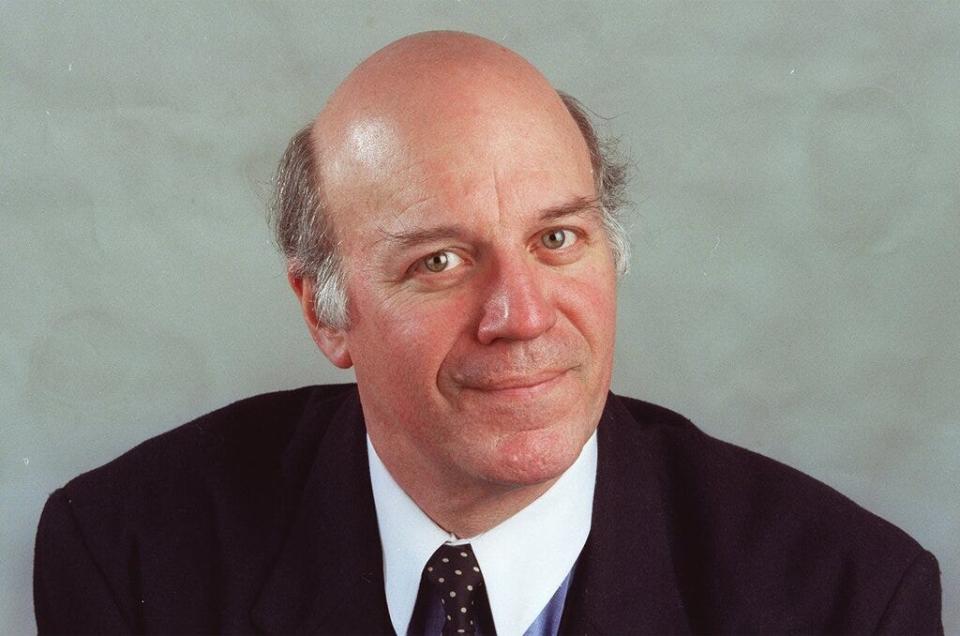Opinion: Brown: The FAIR Project offers a way back after serving time
There are forces and failures in a person’s life that can spiral out of control. Sometimes, that downward spiral ends up in prison.
We’ve never been clear whether incarceration is intended to be redemptive or punitive. In some cases, it just keeps dangerous people off the streets. Either way, when people emerge from prison, we don’t want them to revert to criminal activity.
If our continued purpose is punishment, life for the ex-con should stay difficult. Some states deny ex-cons the vote for the rest of their lives. Bank accounts can be hard to get. Jobs too. Where will first and last month’s rent for an apartment come from — or money for a security deposit? It’s hard enough to change for the better without so many cards being stacked against someone.
If our long-range purpose is redemptive, we should be making it easier to go straight than to return to crime. This is hardly what we’re doing. And since it costs more to imprison a felon than to pay tuition for college, it’s in all our best interests for released prisoners to go and sin no more.
If we ask whose voices in America speak most clearly to visiting people in prison and about forgiveness, it’s our faith institutions. If someone asks why resources should be made available to ex-cons that aren’t available to law-abiding citizens, we have the parable of the Prodigal Son. One brother squanders his inheritance and disgraces himself while his brother works the family farm and does his father proud.
Finally, the prodigal son slinks home in rags and begs forgiveness. “That’s not fair!” complains the faithful son who’s been doing right all along. It is, the father explains, more about love than justice. Redemption always is.
Love is stronger than justice
So it’s no surprise that the Cape’s initial efforts to redeem released prisoners came from our churches. There have been two spin-off projects, inspired by the same spirit.
The Amazing Grace summer camp program is for children of incarcerated people. We know that when one parent is incarcerated, 73% of their children will be eventually. If two parents are incarcerated, over 90% of their children will end up being incarcerated at least once. The chain must be broken.

In the beginning, the camp program ran for one summer week. Now it's a yearlong round of activities and connections so that the bonds kids form during summer camp can be maintained to support them during the year.
Typically, the camp has 15 children per year. Some of them are actually off to college now, which is a real sign of success. Folks from all around the United States come in to mentor and for eight years, it’s been going strong. Want to contribute — or mentor — visit amazinggracecapecod.org.
The FAIR Project Inc. is the second spin-off you should know about. (Google Fair Project Inc. or email fairprojectcc@gmail.com) Various western charities have pioneered the idea of “micro-loans” to help third-world people start their own flocks of livestock or start small businesses. It often doesn’t take much to turn someone’s life around.
You might be surprised to know that historically, indigent people have a better record of paying back their loans than do borrowers in affluent societies. What’s sound business practice can be redemptive as well. And that’s a big part of what the FAIR Project does. They offer micro-loans to men and women just out of jail. In addition to helping people get housing, they may have court or restitution expenses hanging over them as well.
Dignity and respect for former inmates
Project volunteers receive referrals from the re-entry program at the Barnstable County Correctional Facility. Each potential client is treated with dignity and respect as the program seeks to understand financial needs, determine loan amounts, and establish a repayment plan. Equally important is a compassionate human connection — to know that somebody cares enough about them to invest their own time and money into their futures.
So there it is. What started off as an outreach effort from St. Mary’s Episcopal church in Barnstable outgrew the parish and enlisted secular support from its neighbors. In both cases, privately organized 501C3 charities have been organized to advance the work.
In the 1992 movie, "City of Joy," set in Calcutta, a woman is offered the risky chance to help a leper woman give birth. “Thank you,” she says afterwards, “for allowing me to be of use.” As opportunities arise, I’ll keep showing you good things being accomplished all around us. They are opportunities for us also.
As the credits begin to roll after "City of Joy," a Hindu proverb appears on the screen: “All that is not given is lost.”
Lawrence Brown is a columnist for the Cape Cod Times. Email him at columnresponse@gmail.com.
This article originally appeared on Cape Cod Times: Columnist Lawrence Brown: How to change the world at home
